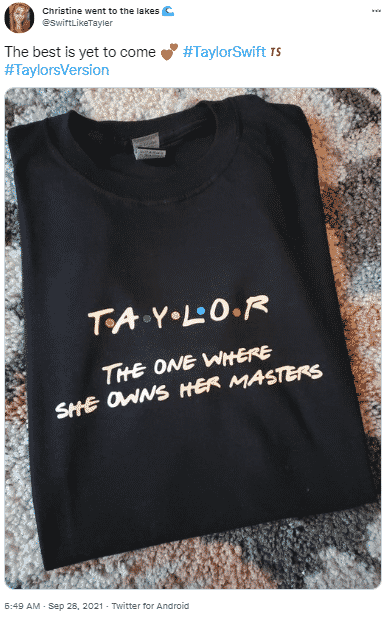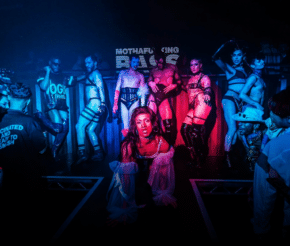- Advertise
-
Subscribe
#TaylorIsFree – Claiming Ownership

In a lengthy Tumblr post published two years ago, Taylor Swift shared the gory details of her feud with Big Machine Records – the star’s ex-record-label which had fallen into the hands of her arch nemesis, Scooter Braun.
In her own words:
“For years I asked, pleaded for a chance to own my work. Instead I was given an opportunity to sign back up to Big Machine Records and ‘earn’ one album back at a time, one for every new one I turned in. I walked away because I knew once I signed that contract, Scott Borchetta would sell the label, thereby selling me and my future. I had to make the excruciating choice to leave behind my past. Music I wrote on my bedroom floor and videos I dreamed up and paid for from the money I earned playing in bars, then clubs, then arenas, then stadiums.”
To cut a long story short, Borchetta sold the label (including Swift’s masters) for a cool $300 million and a series of disputes quickly followed.
These included reported refusals to allow Swift to sing her old music at the American Music Awards, and a declined request to incorporate her past tracks into a Netflix documentary about the pop star’s life.
If she couldn’t own her old music, Taylor Swift could just re-record it
For the ex-country-singer, it looked like a deal she signed at 15 years of age with no prior industry knowledge would be set to haunt her ‘in perpetuity’ – to quote the terms of Braun’s ownership over her masters catalog.
Then along came the idea of ‘Taylor’s Version’, and everything changed.
If she couldn’t own her old music, Taylor Swift could just re-record it.
Swift was planning to re-record the same songs with the same melodies
Legally-speaking, you might be thinking that this all sounds a bit dubious.
As she announced in an interview with Good Morning America, Swift was planning to re-record the same songs with the same melodies and lyrics.
/ YouTube
Surely there must be a copyright infringement somewhere in that, right?
Actually, no. It’s all totally legal.
Disputes like Swift’s aren’t exactly the norm
According to Rolling Stone, there’s a common clause in musicians’ contracts which states that ‘the later of two years following the expiration of the agreement or five years after the commercial release’ of a song, it can be re-recorded by the artist who made it.
We don’t tend to hear about this happening very often because disputes like Swift’s aren’t exactly the norm.
Her issue about not owning the rights to her music was not an abnormal one. It’s especially common among artists breaking into the industry young (in particular female ones, who find themselves intimidated and underrepresented in the male-dominated music business).
What was so unique about Swift’s issue was that the decisions her old label made to pull her music from awards shows and Netflix deals were seemingly motivated by personal vendettas rather than callous business calls.
It became less of a debate about profit, and more of a question of principle.
Some fans complained about having to say goodbye to their much-loved favourites
It seemed like everyone had something to say about Taylor’s decision to re-record her masters, and not all of it was positive.
Some fans complained about having to say goodbye to their much-loved favourites to make way for Swift’s new-and-improved ethical versions of them.
But mostly, the internet got behind Swift’s mission in full, expressing outpourings of support on the star’s Instagram, Twitter, and Tumblr accounts.

We’ve already had ‘Fearless (Taylor’s Version)’, released on 9th April 2021, boasting ‘26 songs including 6 never before released from the vault’, as the star documented in a Twitter post.
Next up is ‘Red’, due to drop on the 19th of November.
Once again, Swift vowed to expand upon the original album, teasing fans with the promise of ‘all 30 songs that were meant to go on Red’, including one which ‘is even 10 minutes long’.

Whether you’re mourning Swift’s old albums, getting pumped for the release of her new ones, or just remaining unbothered by it all in general, it’s difficult to ignore the culture shock that the release of ‘Taylor’s Versions’ has set in motion in the music world.
It’s difficult to ignore the culture shock that the release of ‘Taylor’s Versions’ has set in motion
Could this be the start of a new trend of artists reclaiming ownership over their creative property? Or could it just be an overhyped one-off?
As the TikTok generation of musicians takes to the stage, we’ll just have to wait and find out.







